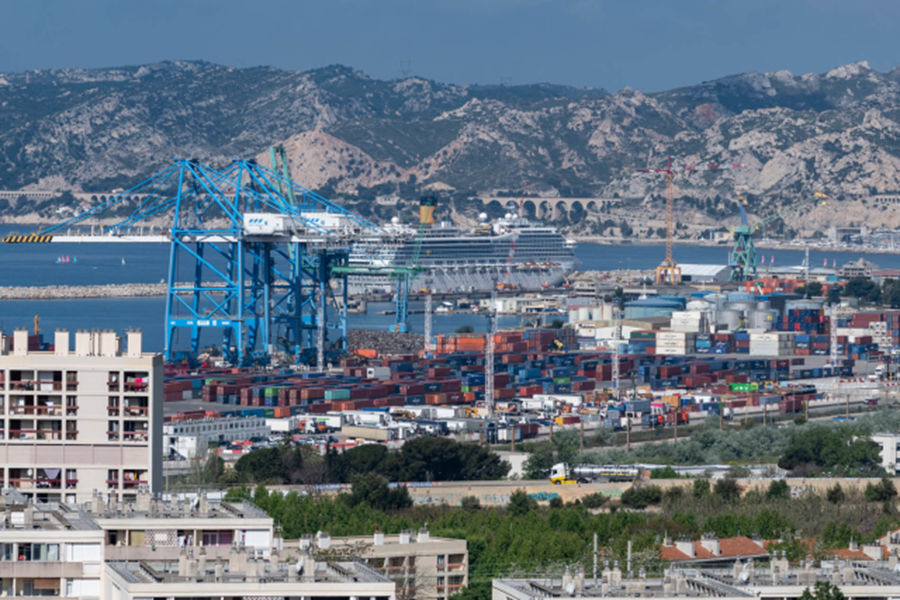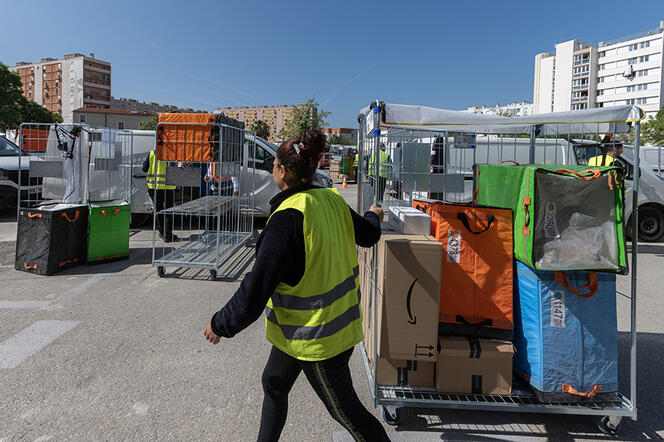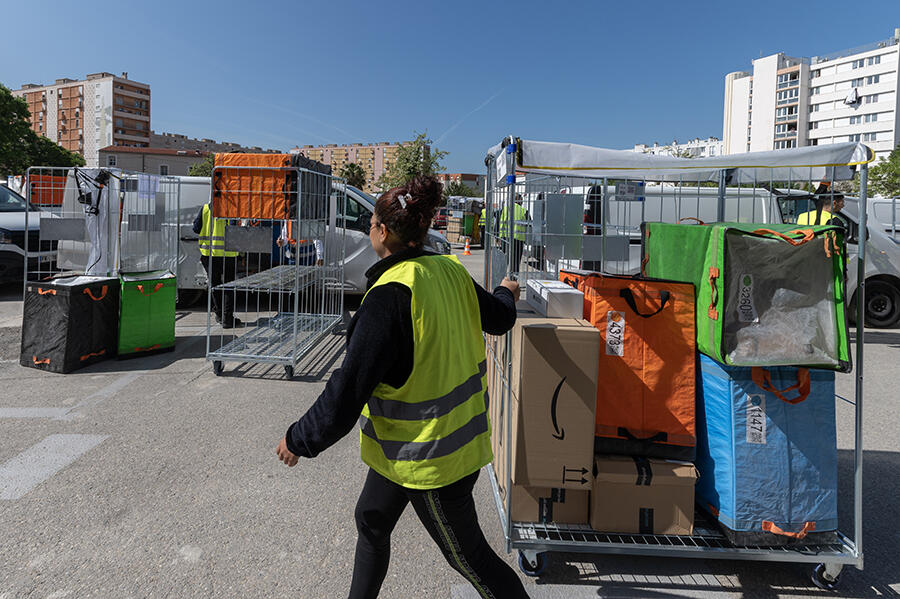You are here
A world of warehouses
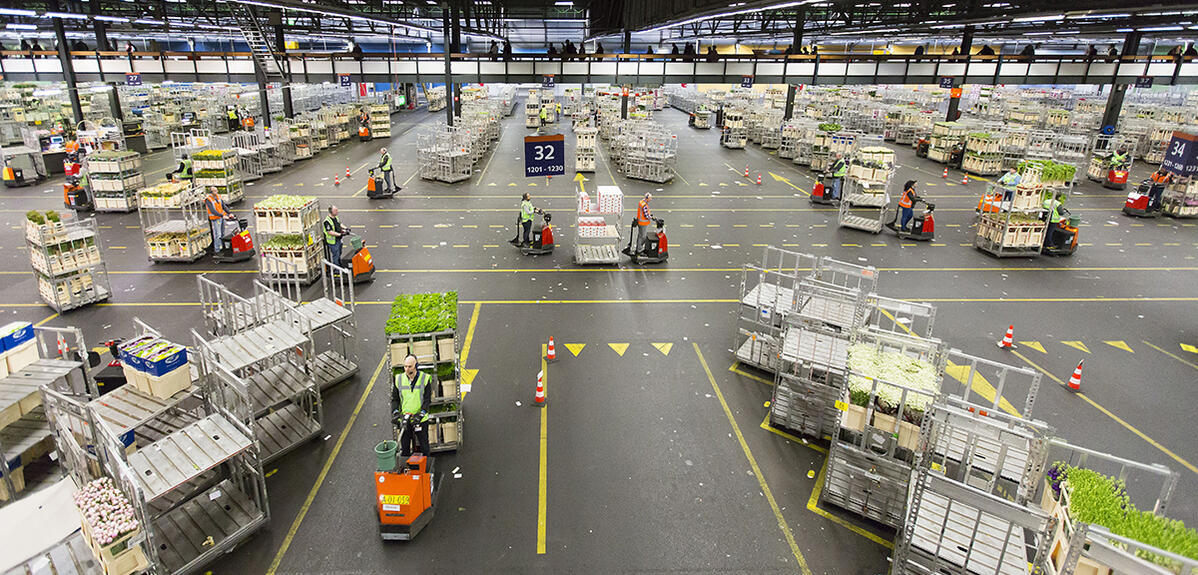
You are the scientific coordinator of Le Grand Entrepôt (‘The Great Warehouse’) research project. What is the ‘warehouse economy’ that your work focuses on?
Delphine Mercier1: The question of storage is as old as the production of goods, but it has assumed unprecedented importance today, as warehouses are on the increase across the globe – both in terms of number and size – and more than ever play a crucial role in the global economy. If you analyse the entire production sector, you realise that what could be referred to as ‘the social life of goods’ systematically passes through such locations, whether it involves assembly, procurement management, packaging, or recycling. This is why people now talk of a ‘warehouse economy’. Warehouses have become spaces of reference that are central to production systems, and as such lead to both formal and informal economic activity in the cities on whose outskirts they are established. In connection with our research project entitled “The Great Warehouse” (in French), we aim to scrutinise the many layers of this reconfiguration of production systems, in addition to their implications.
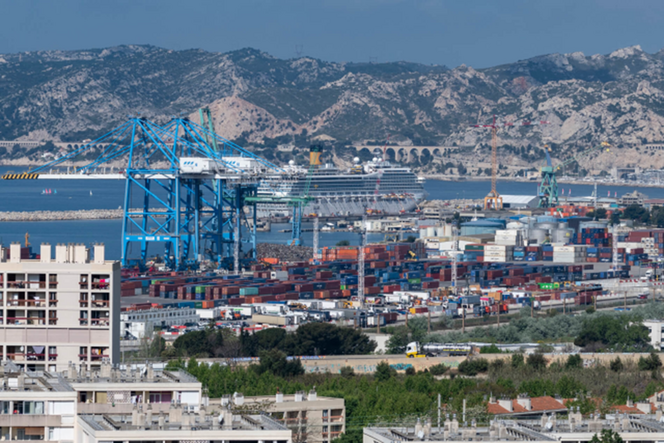
Why take an interest in warehouses in particular rather than industries, for example?
D. M.: We believe there is a blind spot in the research. On the one hand, major companies and actors are well known, as there have been a great many studies on the subject in the fields of economics, management, and history. On the other hand, the lives of employees in logistical centres – typically those managed by Amazon – is also beginning to be looked into. This work is more recent, but it helps give an idea of working conditions, recruitment, career paths, etc. And yet the link between the two remains little explored. How do large firms use these centres today, and hope to use them in the coming years? Do the activities being developed inside and around warehouses encourage the development of new strategies? Our project aims to be more global, and seeks to study the entire chain. The goal is also to better understand the functions of the many intermediaries involved.
How has the ‘storage function’, as you have called it, evolved in recent decades?
D. M.: One of the key issues is precisely to define this ‘storage function’, for it is relatively new.
In the 1980s, production systems strove to work on a just-in-time basis: a client ordered something, and a company shipped it. Today, several actors may intervene between these two stages to assemble the product, package it, reduce shipping costs, etc. All or part of a commodity can be stored on multiple occasions over the course of its production and delivery. This evolution of the production chain has notably encouraged countries with substantial land capacities, such as Ireland, Malta, and Panama, to offer particularly attractive fiscal regimes. In short, there has been an outsourcing of storage since the 1990s. Large companies and industries have gradually stopped storing their products themselves, instead delegating this function to others.
What are the consequences for the cities and zones that have become storage spaces?
D. M.: These spaces are generally near borders and often in port areas, as ships offer a particularly interesting means of transport. They adopt regimes of exception in terms of taxation and employment law, thereby allowing major corporations to reduce their charges and production costs. They are referred to as ‘free zones’. This is true of countries such as Malta and Panama, but also for the city of Tangiers in Morocco, or the Port de l’Estaque in Marseille, in southeastern France. One point bears emphasising: the globalisation of the economy cannot be reduced to offshoring, it also translates into the coexistence of different legal regimes within the same territory. In general, all efforts are made to attract major industries and businesses, which in turn claim to generate activity and provide jobs. However, we have observed that the dynamics of integration and contribution to the local economy remain extremely low. In most of the regions concerned, we have instead witnessed the development of a parallel and informal economy around storage spaces. It is just one small step from a free zone to a grey area.
Can you give an example of these informal economies?
D. M.: In South America, Bolivia stores enormous amounts of textile goods originating from China and heading to Europe. But it does not have access to the sea, and therefore goes through the port of Iquique in Chile, which is a free zone. Between these two stages, some of the merchandise may be damaged, stolen, or requalified as unsold stock.
This situation promotes the development of an entire economy revolving around second-hand clothing and recycling, one that is assuming ever greater importance on site. Bolivians recycle textile waste in the form of bundles of used clothes, or rags for use by local industries. Each year, on the occasion of a major textile fair, second-hand dealers also sell pieces they salvaged or reworked. Other small jobs have also appeared, such as container cleaners, who intervene between two periods of storage. In short, an entire economy of poverty and precariousness is emerging, one that incidentally helps manage the waste created by Western production.
What do you generally hope to learn about the evolution of work and the economy through this research?
D. M.: The global economy has changed paradigm. We are no longer in the wake of the Industrial Revolution but rather entering another revolution – that of logistics and the warehouse economy. This creates new forms of employment, which replace the worker-based labour of the nineteenth and twentieth centuries. Today, in free zones, young workers get odd jobs connected to the logistical chain, such as shipping, cleaning, or serving as security guards. For that matter, from an environmental perspective in particular, the rise of storage and logistics raises significant problems, as maritime and road transport is extremely polluting, containers can disfigure landscapes and ecosystems, etc. For all that, we do not want to make actors in storage feel guilty. What we are interested in is understanding how this new economy is a system, and how it leads to new forms of work. ♦
- 1. CNRS research professor at the Labour Economics and Industrial Sociology laboratory (LEST – CNRS / Aix-Marseille Université), attached to the Maison Française d’Oxford (CNRS / MEAE / University of Oxford).
Explore more
Author
Fabien Trécourt graduated from the Lille School of Journalism. He currently works in France for both specialized and mainstream media, including Sciences humaines, Le Monde des religions, Ça m’intéresse, Histoire or Management.



